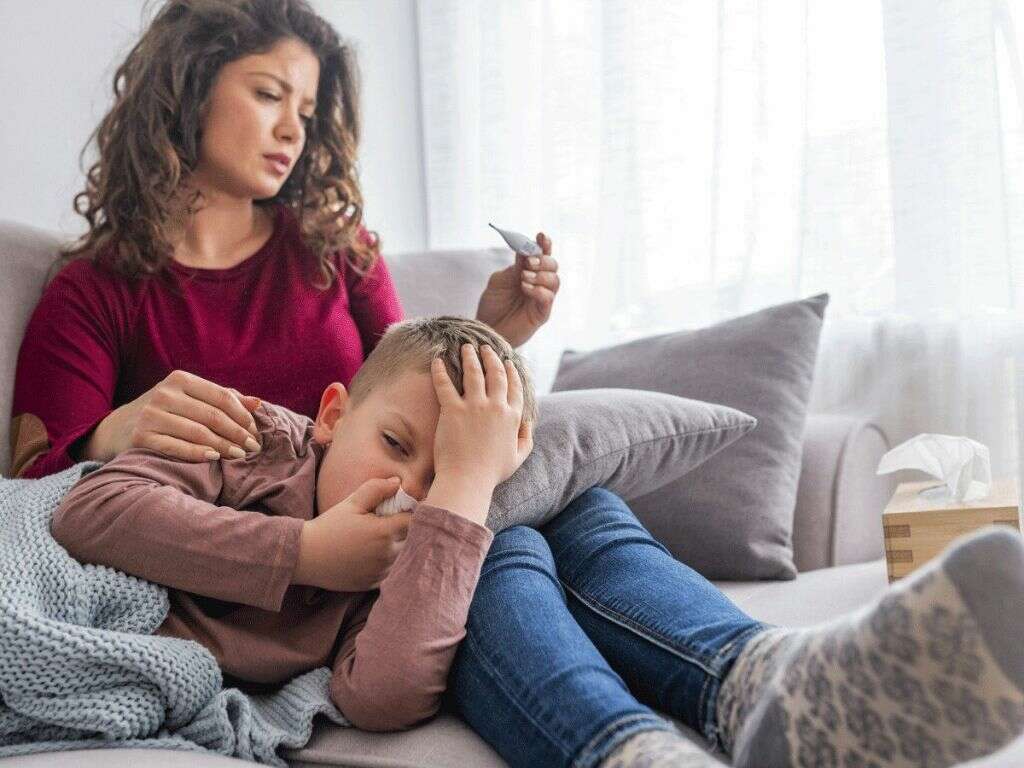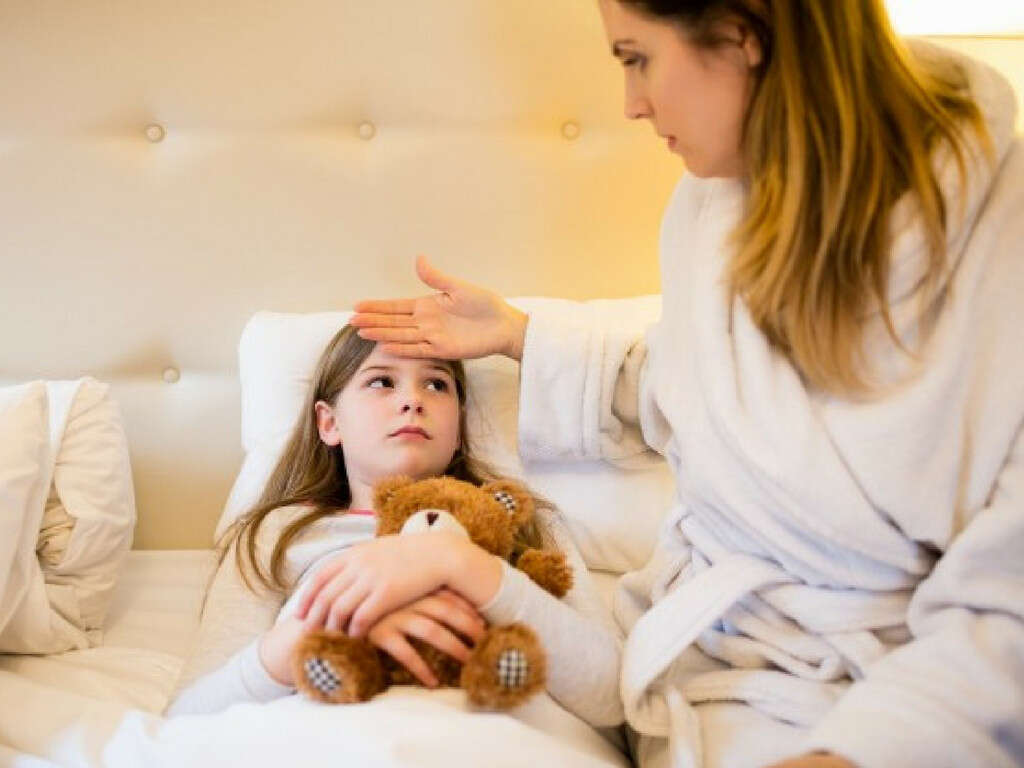What Is Roseola Infantum?
When your child becomes suddenly ill with a high fever and then a rash appears, you may panic. Though it is normal to become alarmed when your child presents multiple, seemingly unrelated symptoms, try not to. A quick Google search may tell you that your child has roseola infantum.
Roseola, also known as sixth disease, is a common childhood condition. Sometimes the outbreaks are local, sometimes they’re random. Cases almost always occur in children between the ages of six months and three years. The ailment is rare in children over four.

1. What Are the Symptoms of Roseola Infantum?
Your child may not show symptoms of roseola infantum until five to 15 days after infection. When symptoms do arise, they may appear suddenly or develop gradually. Some children begin with a mild respiratory illness followed by an elevated temperature, while others acquire a high fever seemingly out of nowhere. The fever may last for up to one week.
A rash ensues almost immediately after the temperature subsides, typically within a few hours. The eruption can either be raised or pinkish-red and flat. It does not itch. It typically occurs on the trunk of the body and turns white when touched. In some cases, the spots may have a red halo around them. The rash usually lasts for two days.
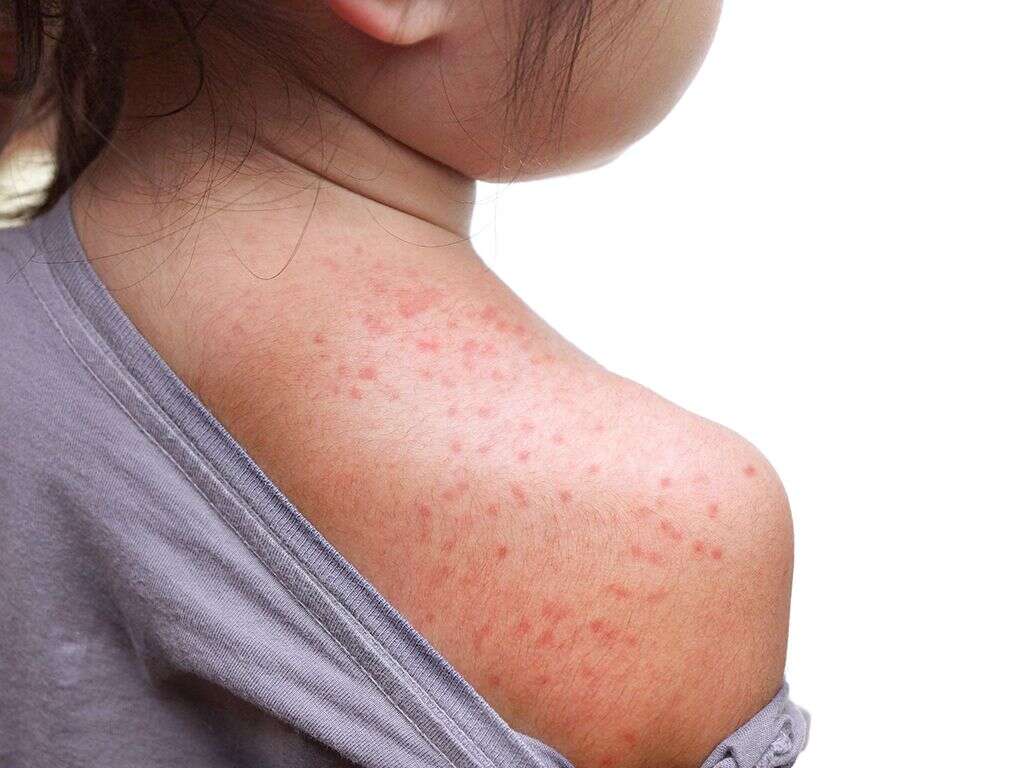
2. Can Roseola Infantum Create Complications?
Because roseola is characterized by a high fever, some children do develop complications. The fever, which can become as elevated as 105 degrees Fahrenheit, is fast-rising and can trigger febrile seizures. In fact, as many as 10% to 15% of children who get roseola are affected by these seizures.
The signs of a febrile seizure are hard to miss. The seizures are characterized by two to three minutes of twitching or jerking of the legs, arms or face. They may cause a child to lose control of his or her bowel or bladder movements and, in some instances, they result in unconsciousness.

3. What Causes Roseola Infantum?
Sixth disease is caused by human herpesvirus type 6. It belongs in the same family of viruses that are better-known as herpes simplex viruses. Though this may alarm you, know that roseola is a completely normal childhood illness and not reoccurring.
Unlike other HSV viruses, roseola does not cause genital herpes infections, cold sores or other blisters. A child does not have to live with a lifelong fear of a reoccurring outbreak, and typically, once a child has the virus, he or she will not get it again.
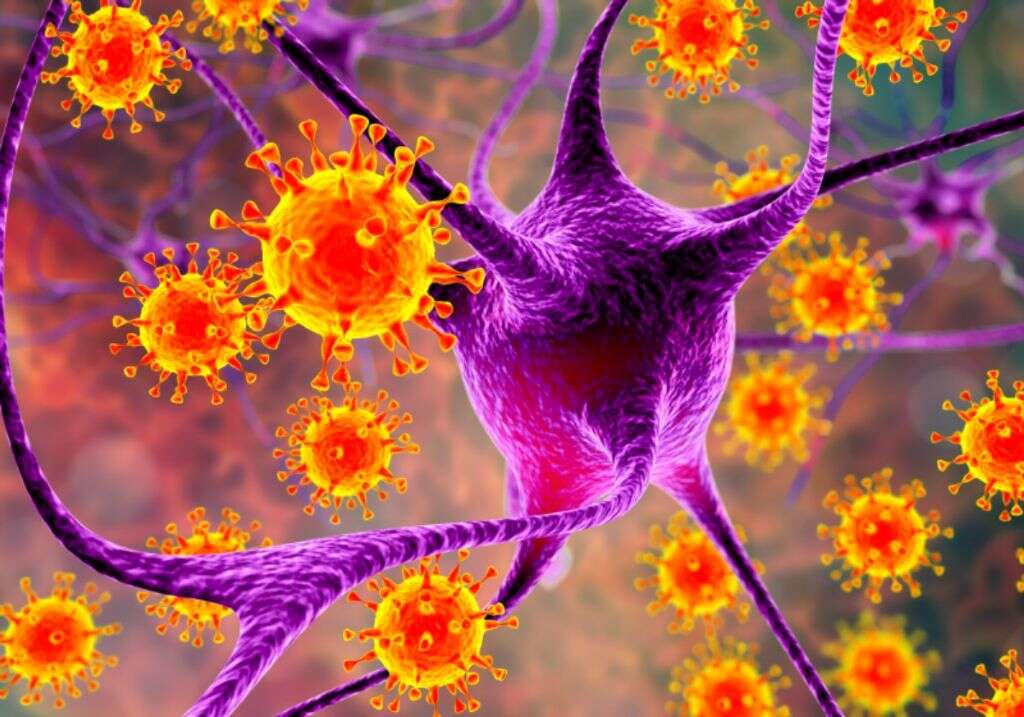
4. Is Roseola Infantum Contagious?
Roseola is extremely contagious. As with other viral illnesses, such as the common cold, sixth disease spreads through droplets of saliva or other bodily fluids. This makes person-to-person transmission likely between classmates and family members. Contracting the virus may be as simple as sharing a cup with someone who has it.
Roseola is contagious even if a person does not have a rash. In fact, roseola is the most contagious post-infection but pre-fever and during the fever stage. Once the tell-tale rash appears, the affected child is no longer contagious.

5. How Is Roseola Infantum Diagnosed?
The easiest way to diagnose roseola is through a doctor’s evaluation. Typically, a doctor can tell just by looking at a rash that the condition is roseola. However, by the time the rash occurs, the virus has already run its course. Most parents typically call the doctor pre-rash and after days of intense fever.
If you bring your child into the doctor while he or she still has a fever, your pediatrician may suspect sixth disease based on the length of the fever. If your child has recently been in contact with an infected child, sharing this information with your doctor can aid in the diagnosis.

6. How Is Roseola Infantum Treated?
In most cases, roseola does not require medical intervention. Like the common cold, the virus will run its course with little more than at-home care. If your child’s fever is extremely high, you can administer ibuprofen or acetaminophen to help manage his or her temperature. Never administer aspirin for viral illnesses since doing so can cause Reye’s syndrome.
High fevers can result in dehydration. To prevent this from happening, make sure your child drinks plenty of fluids. Give him or her ice chips and, if you become worried, administer some Pedialyte. Formula and breast milk can also prevent dehydration.

7. When Should You Call the Doctor for Roseola Infantum?
In most cases, roseola resolves on its own without medical intervention. However, you know your child best, so if you feel something is amiss, give your pediatrician a ring. Some signs that may warrant a doctor’s visit include lethargy, refusal to drink and a fever that does not subside after 48 hours.
Emergency medical care may be necessary if your child has a convulsion that lasts for longer than five minutes, does not wake up after a convulsion or appears to be very ill after a convulsion. If your child has a rash and fever at the same time, and the rash does not turn white upon pressing it, call the doctor. It could be a sign of meningococcal infection.
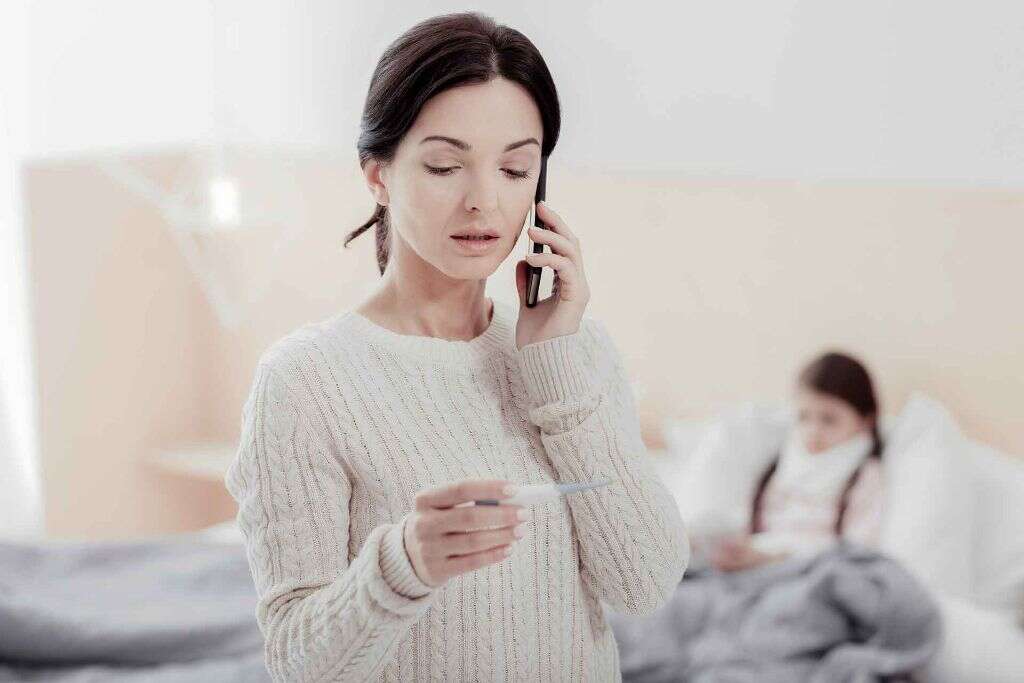
8. Can You Prevent Roseola Infantum?
Unfortunately, there is no vaccine to prevent sixth disease. However, there are ways you can prevent your child from contracting the virus. For instance, limit exposure to children who are sick and teach your child good hygiene practices. If your child has a fever, keep him or her away from other children until the fever has broken.
Once a child contracts roseola, he or she is immune to future infections. As a result, most people have antibodies to the illness by the time they’re five or six years old. Even so, if one household member becomes sick, limit contact with others and enforce strong handwashing habits, as well as a no-sharing food or drinks rule.

9. Who Is Most at Risk for Roseola Infantum?
Older infants are most at risk for contracting roseola since they have yet to develop their own antibodies to most diseases. Newborns and young infants still have antibodies from their mothers, but this immunity decreases with time. Children between the ages of six and 15 months are most at risk although it’s common for children as old as four to become infected.
Though rare, it is possible for adults to get roseola infantum. Adults who never contracted the condition when young may get it from their own children or being around other children. However, the illness tends to be mild in adults although they can still pass it on to children.
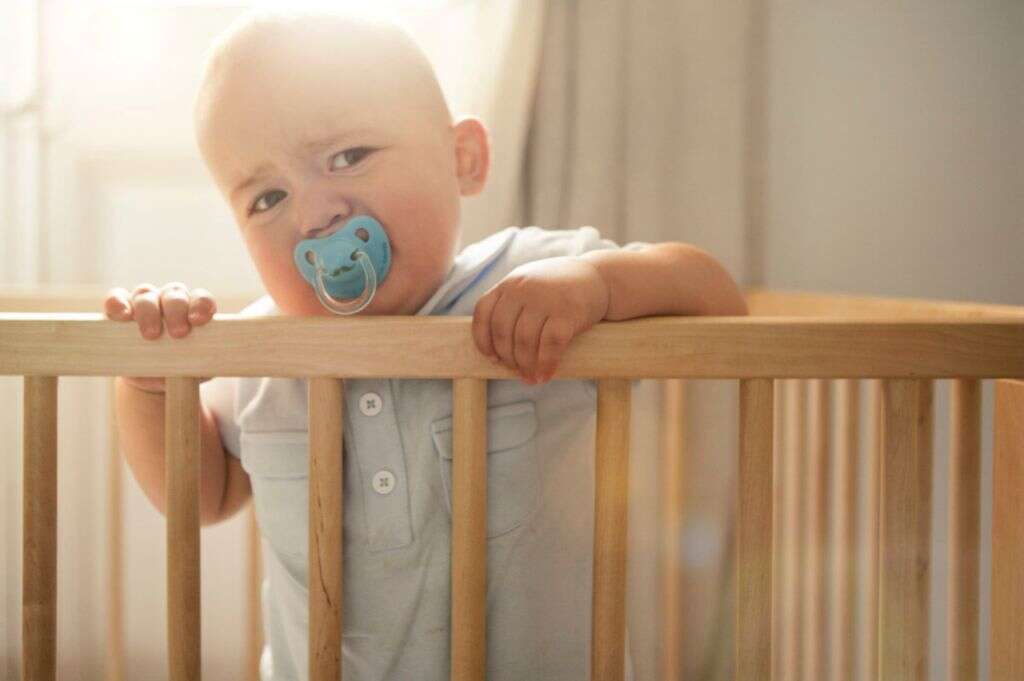
10. Should Immunocompromised Individuals Be Worried About Roseola Infantum?
People with compromised immune systems are at greater risk of contracting just about any illness. Moreover, they’re at greater risk of developing complications. This is because they have less resistance to viruses in general and have a harder time fighting off infections.
Immunocompromised individuals who contract roseola may develop serious difficulties from the illness. Such complications may include pneumonia or encephalitis, which is a possibly life-threatening inflammation of the brain.










